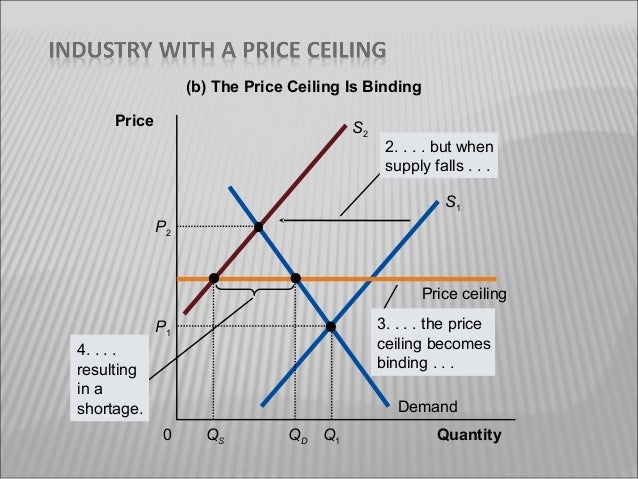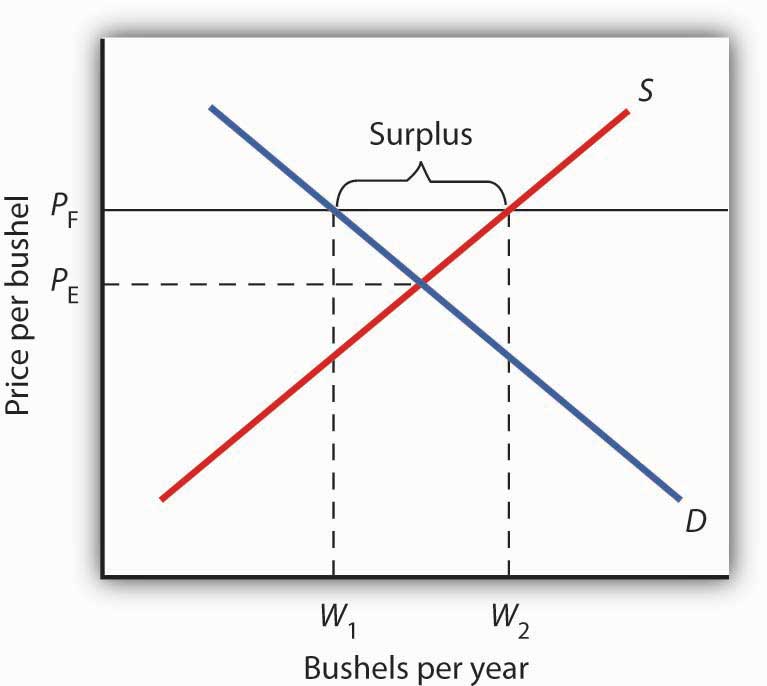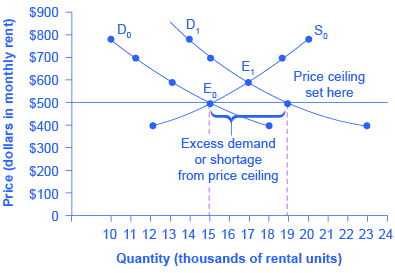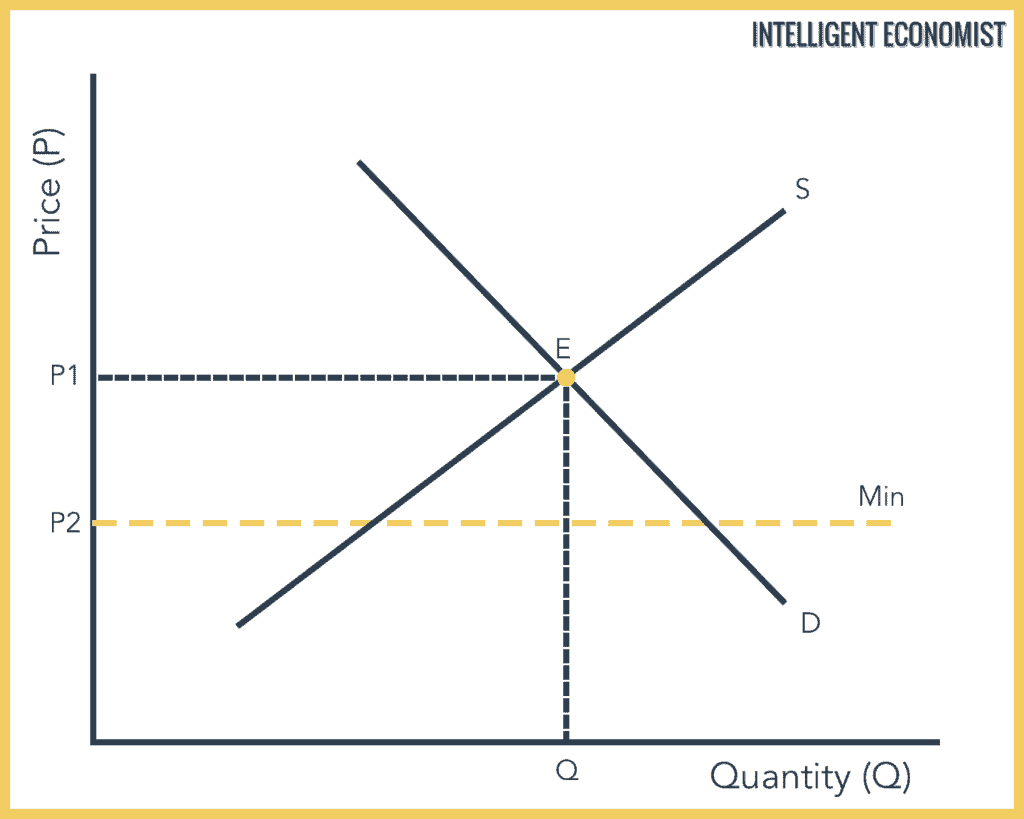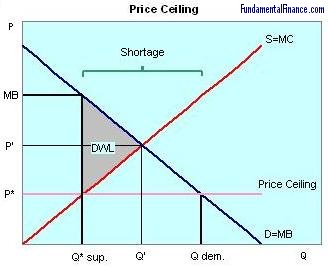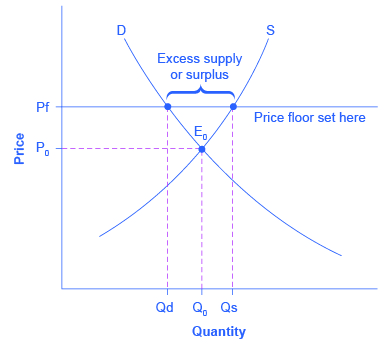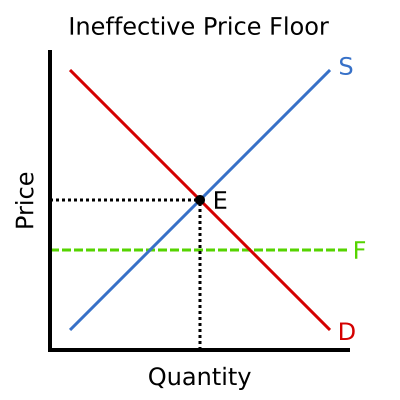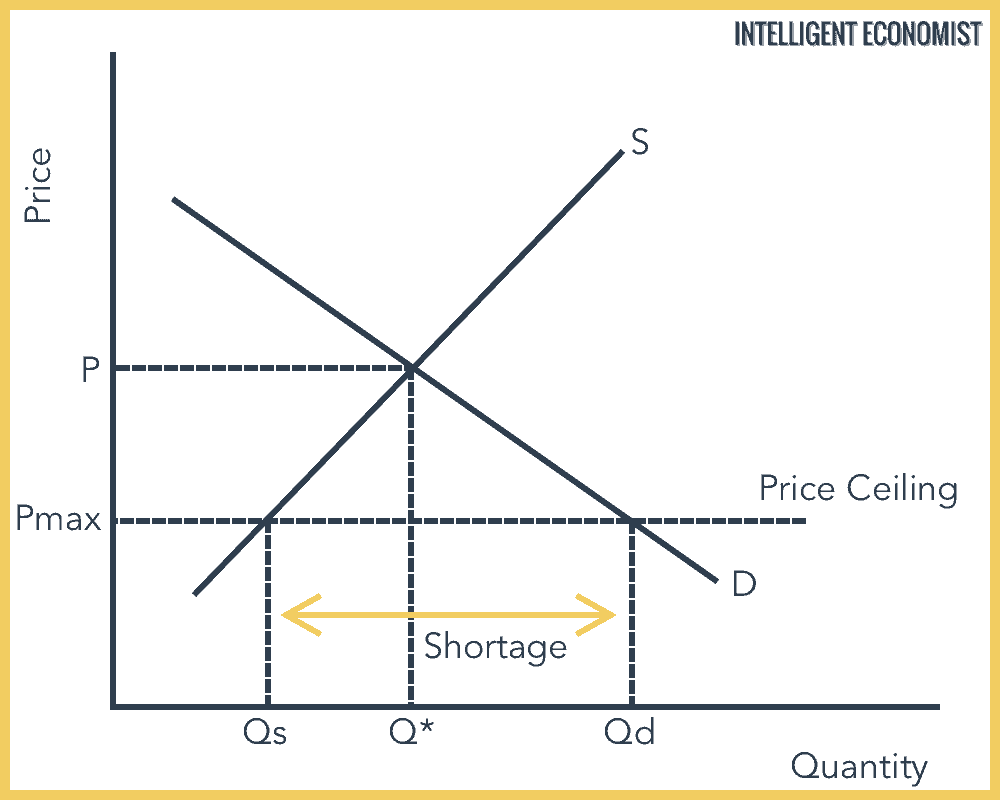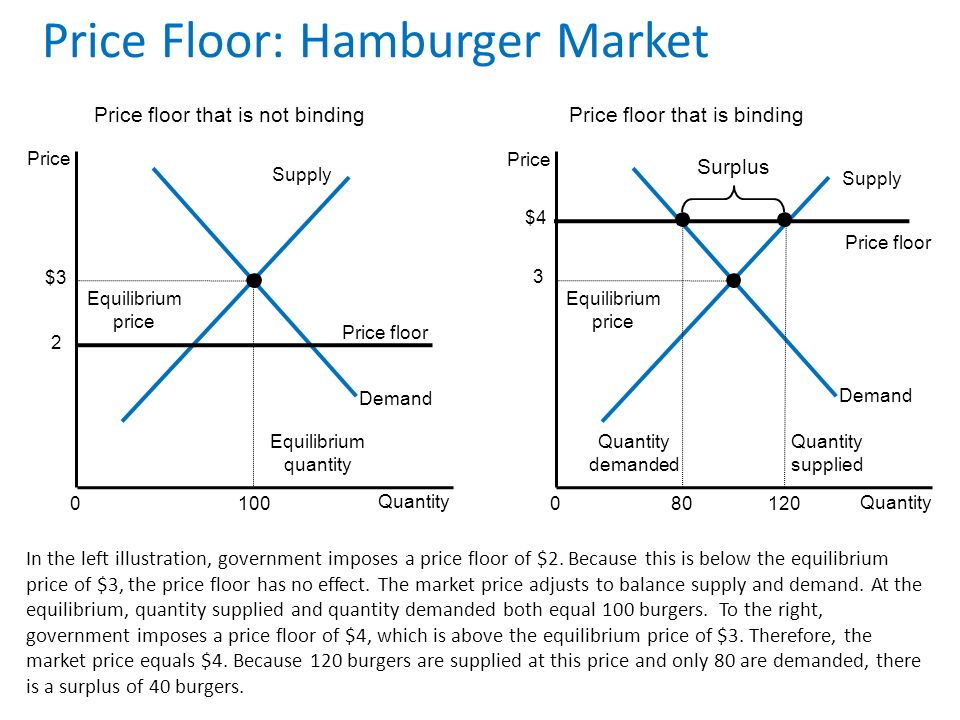Surplus For Increasing Cost Industry With Bindingprice Floor
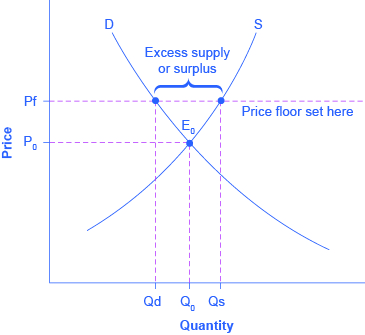
A price floor is the lowest legal price a commodity can be sold at.
Surplus for increasing cost industry with bindingprice floor. Consumer surplus will only increase as long as the benefit from the lower price exceeds the costs from the resulting shortage. Price floors are used by the government to prevent prices from being too low. Minimum wage and price floors. A price floor is a form of price control another form of price control is a price ceiling.
This is a price floor that is less than the current market price. Price floors are a common government policy to manipulate the market. Effect of price floor and ceiling on agriculture and petroleum industry. The result is a surplus of the good due to.
Perhaps the best known example of a price floor is the minimum wage which is based on the view that someone working full time should be able to afford a basic standard of living. Measured by the seller s cost of production. A binding price floor is a required price that is set above the equilibrium price. Decrease and the quantity sold in the market will increase.
Example breaking down tax incidence. The most common price floor is the minimum wage the minimum price that can be payed for labor. How price controls reallocate surplus. Increase and producer surplus in the industry will increase.
Price and quantity controls. Percentage tax on hamburgers. The effect of government interventions on surplus. Shujaat mubarak introduction in this presentation we have highlighted the effect of price flooring and price ceiling on agriculture and.
Imran abdul qadir sp12 ex 0060 shoaib ahmed sp 12 ex 0085 imtiaz sheikha sp11 ex 0005 muhammad talha sp11 ex 0004 faisal ashraf ali sp11 ex 0010 submitted to. Price floors are also used often in agriculture to try to protect farmers. A price floor is a government or group imposed price control or limit on how low a price can be charged for a product good commodity or service. The government is inflating the price of the good for which they ve set a binding price floor which will cause at least some consumers to avoid paying that price.
There are two types of price floors. A price floor or minimum price is a lower limit placed by a government or regulatory authority on the price per unit of a commodity. The equilibrium price commonly called the market price is the price where economic forces such as supply and demand are balanced and in the absence of external. When a binding price floor is used it will create a deadweight loss if the market was efficient before the price floor introduction.
The total economic surplus equals the sum of the consumer and producer surpluses. Taxation and dead weight loss. This is the currently selected item. They are generally used to increase prices such as wages but are only effective binding when placed above the market price.
A price floor must be higher than the equilibrium price in order to be effective. Price ceilings and price floors. Compute and demonstrate the market surplus resulting from a price floor a price floor is the lowest price that one can legally charge for some good or service.

